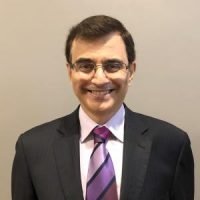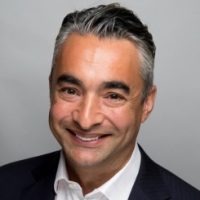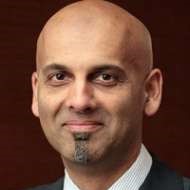Articles / GPs are doing over a billion dollars worth of ‘free work’ every year: BEACH estimate

This is the other half of the story.
The single-minded commitment of the media outlets to the ‘greedy doctor’ narrative was so great that even key leaders in the medical space were not contacted for comment prior to publication.
Apparently, no one wanted to hear about what doctors were putting into the system, just what they were supposedly rorting out of it.
“The first I heard of this story was when my phone started ringing at 6am on Monday morning,” says Dr Karen Price, the president of the RACGP.
“We were very surprised as a college not to have been given any kind of forewarning. It’s unusual, especially for a story of that magnitude.”
When presented with the Heathed survey results showing the devastating impact of this media report on GP morale, Dr Price said, “It’s an absolute tragedy. The fallout will be felt for a long, long time.”
“Given what we’ve done” during the pandemic this latest negative news coverage makes GPs “feel absolutely devastated, demoralised, angry and sad”, Dr Price said.
And, just when we thought it was over, the onslaught kept on coming.
Just this weekend, an Independent Review into Medicare compliance was announced to further interrogate the ‘misuse’ of Medicare funds, despite even a report by Health Minister Mark Butler’s own department finding no evidence to substantiate the $8 billion ‘leakage’ figure.
Dr Eddie Cliff, the researcher who demonstrated the implausibility of the $8 billion figure along with his colleague Dr Tori Berquist, did a quick review of all the media coverage of Medicare ‘rorts’ and could only find one mainstream media article providing an opposing view written by doctors.
“There is a very easy pub test for responsible journalism, which 20 articles versus one article doesn’t pass,” says Dr Cliff, who is an Australian haematology registrar and a postdoctoral research fellow at Harvard Medical School.
Dr Cliff and Dr Berquist read the entire PhD thesis that was cited by the media to substantiate the $8 billion figure. They found that the chapter titled “Quantitative Results” did not contain any quantitative analysis, but instead included qualitative data on 47 medical educators. There simply was no data to substantiate the estimate that they could find.
Many GPs – especially those running bulk billing clinics – will tell you that Medicare simply doesn’t cover the costs involved in providing many of the services that ought to be provided in primary care.
Despite this, many GPs try to make it work and end up doing paperwork and performing clinical services that Medicare rebates won’t cover and they are thus putting unpaid, highly skilled labour back into the system.
So, while the mainstream media coverage speaks of ‘leakage’ of funds into the hands of doctors as a unidirectional phenomenon, this is only one side of the story.
A more balanced and informed assessment of the situation would likely conclude that ‘leakage’ happens in both directions and that ‘reverse leakage’ is a progressively crippling situation that will ultimately force frontline GPs to abandon Medicare en-masse.
It’s either that or just walk away from general practice altogether. We just don’t need the stress.
Polls and surveys clearly show that this is a widespread issue. Fear and confusion is compelling GPs to short change themselves and underbill Medicare, with a substantial impact on their income.
A recent poll by the RACGP found that around half of GPs were losing more than 20% of their income through underbilling Medicare each year. Only 3% of GPs reported no losses due to underbilling.
Another recent survey of GPs by Healthed found that around two thirds of GPs underbilled Medicare every day, and almost one third of GPs underbill Medicare five times or more every day.



A study using data from MABEL, published in the AJGP, and BEACH, published in the MJA, have looked at isolated aspects of these inputs over many years and also concluded that ‘reverse leakage’ is considerable. The MJA study concluded that non-billable clinical services alone were costing GPs between $10 000 and $23 000 per year.
However, there is more to it than non-billable services. In fact, no one has tried to calculate how much all this GP ‘free work’ is worth in dollar terms as a subsidisation of Medicare and yet it is crucial for us to understand just how much are GPs propping up the system by if we are to truly fix it.
This is where Dr Christopher Harrison comes in. When BEACH was defunded in 2016, he became the caretaker of all this historical data, which amounts to 1.8 million GP-patient encounters over 18 years.
As a senior research fellow at the Menzies Centre for Health Policy and custodian of the Bettering the Evaluation and Care of Health (BEACH) data, Dr Harrison is uniquely positioned to help us develop an indicative calculation of how much cash is leaking out of the humble suburban GP’s hip pocket into the ailing giant known as Medicare.
If we assume that ‘free work’ by GPs can be put into two main boxes – non-billable administrative work and underbilling – and we assume that most of the loss associated with underbilling comes from switching Level C for Level B Medicare rebates (see explainer below in the Appendix) – then the following calculations will provide a rough estimate of the value lost to the GP profession from ‘free work’.
The percentage of GP consultations that have associated non-billable time
X The number of consultations that happened nationally in the past year
X An estimate of the dollar value of each instance of non-billable time
= The estimated dollar value of non-billable work by GPs nationally each year (with an upper and lower estimate)
The estimated percentage of GP consultations that have associated non-billable time = 12.1%
The total number of consultations that happened nationally in the past year = 189,338,431
The Level A rebate amount = $18.20
The Level B rebate amount = $39.75
Therefore,
Lower estimate for the total dollar value of non-billable work nationally per year = 0.121 X 189,338,431 X $18.20 = $416,961,092.75
Upper estimate for the total dollar value of non-billable work nationally per year =0.121 X 189,338,431 X $39.75 = $910,670,518.50
We estimate that between $417 million and $911 million is lost to the GP profession as a result of non-billable administrative work.
The number of Level C consultations that were registered nationally in the past year
X The estimated Level C to Level B underbilling rate
X The dollar value difference between a Level C and a Level B consult
= An estimate of the total dollar value lost in general practice due to underbilling nationally each year
The estimated C to B underbilling rate = 0.6245
The number of Level C consultations registered nationally in the past year = 17,603,869
The $ difference between a Level C and a Level B consult = $76.95 – $39.75 = $37.20
Therefore,
The rough number of consults switched from C to B in the past year = 17,603,869 x 0.624 = 10,992,817.41
And,
The estimated total dollar value lost in general practice due to underbilling nationally each year = 10,992,817.41 X $37.20 = $408,932,808.7
We estimate that approximately $409 million is lost to the GP profession as a result of underbilling.
Estimated total ‘free work’ by GPs
= Estimated total $ value of non-billable administrative work
+ Estimated total $ value lost to underbilling
So, $911 million (upper bound) + $409 million = approximately $1.3 billion lost to the GP profession annually due to non-billable work and underbilling.
And, a more conservative estimate (using the lower bound for admin work), would be $417 million + $409 million = approximately $826 million.
Someone has to pay for that estimated $1.3 billion worth of ‘free work’ that GPs are doing.
Ultimately, as private contractors the only choice that GPs have is to raise their prices to cover this expense.
This ends up with financial pressure being put on patients and hence reduced access. This transition is already happening; a recent survey by Healthed shows that one-in-five GPs are moving from bulk billing to mixed or private billing.
But what is being lost in the process is universal access to primary healthcare.
No GP with their head screwed on would be opposed to an inquiry aimed at making Medicare more effective. In many ways, it can be argued that Medicare was never set up to become the primary source of income for profit-oriented corporations and we’re sure there is a lot of ‘leakage’ to be found in this area.
However, 84% of GPs don’t work in corporate practice, and yet they have borne the brunt of the media’s recent efforts to turn public opinion against them.
So, now that Health Minister Mark Butler has announced his investigation into Medicare, the question is whether the impending inquiry will be solely focused on ‘misuse’ of Medicare funds and thus perpetuating the unfair ‘greedy doctor’ narrative playing out in the media or if it will be a true and impartial investigation.
We hope that the investigators will have the IQ, the authority and guts to do what the media reports haven’t done – take a detailed, evidence based look at all sides of this story and make some fearless, fundamental recommendations for positive, sustainable change.
And we look forward to the presidents of the RACGP, AMA and ACRRM being deeply involved. If they aren’t invited they should turn up anyway, and make a lot of noise in the foyer until someone listens.
‘The Rebel GP’ is written by a team of GPs, writers and data analysts at Healthed who rotate week to week. For those of you interested in the details of our assumptions, reasonings and calculations, see the Appendix below.
We found two studies looking at how much non-billable work GPs do.
In a 2016 BEACH study of 1,935 randomly sampled GPs, 12.1% of consultations were associated with non-billable time (with an average of 10 minutes per occasion).
If claimable through Medicare this would equate to $10 000-$23 000 per annum per GP, the researchers estimated.
A 2021 study used MABEL data from 2,907 GPs and found that GPs spent 5.1 hours per week or 14.2% of their time on non-billable activities.
We will use the percentage of GP consultations that have associated non-billable time from the BEACH data, rather than the percentage of GP non-billable time from the MABEL study, because the BEACH data can be extrapolated to a national figure with fewer assumptions. (i.e. We know the number of GP consultations in the past year, whereas the hours of work performed by GPs nationally would need to be estimated with many assumptions.)
The calculation in the article above uses Level A and Level B rebate amounts as upper and lower estimates because it is following the same logic as the 2016 paper, of which Dr Christopher Harrison is a co-author.
This paper states that “the mean non-billable time was 10.1 minutes per occasion (consistent with a Level B Medicare item number), and the median was 6.0 minutes (implying straightforward cases consistent, and therefore a Level A Medicare item number). However, the complexity of these cases was impossible to determine, so cost estimates were based on both Level A and Level B item rebates.”
We know from existing data that underbilling is a major issue in general practice.
The RACGP’s recent Health of the Nation report reported that 47% of 3,219 GPs avoided claiming patient rebates due to fear of Medicare compliance ramifications.
In Healthed’s recent survey, around two-thirds of GPs said they underbilled Medicare every day, with almost one third of GPs saying they underbilled Medicare five times or more every day.
In this survey, the most common Medicare item number underbilled by surveyed GPs was item 36, which is a Level C consult that goes for at least 20 minutes and attracts a rebate of $76.95.
The item 36 is most frequently downgraded to item 23, which is a Level B consult lasting less than 20 minutes and attracting a Medicare rebate of $39.75.
While we have evidence that the Level C to Level B switch rate is high, the only data immediately available to calculate the overall rate of Level C to Level B underbilling comes from a study using 2004 BEACH data.
This study, published in the MJA, examined the billing habits of 2,811 GPs over 101,112 consultations.
Using data from this study, we can determine the percentage of Level C consultations that were plausibly underbilled as Level B.
Take the number of consultations that were claimed as B but could have been claimed as C (5,725 – all the B consultations longer than 20 minutes) and divide it by the total number of claimed Level C consultations (9,168). Therefore, the percentage of claimed Level C consultations that were underbilled as Level B was 5,725 / 9,168 = 62.4%.

We must issue a big warning here that this data is now around 20 years old, and much has changed in that time (although the wording for Level B and Level C has remained almost identical – we checked).
However, this seems like a reasonable number to choose, given the more recent evidence that underbilling is high in general practice.

Heart Failure – Demystifying Pharmacological Management for GPs

Iron Deficiency in Children & Young People

Heart Failure – Assessment and Monitoring in Primary Care

COPD Update



Strongly support
Somewhat support
Neither support nor oppose
Somewhat oppose
Strongly oppose
Listen to expert interviews.
Click to open in a new tab
Browse the latest articles from Healthed.
You have completed the Educational Activities component of this resource.
Select ‘Confirm & claim CPD‘ to confirm you have engaged with this resource in its entirety and claim your CPD.
You will be taken to explore further CPD learning available to you.